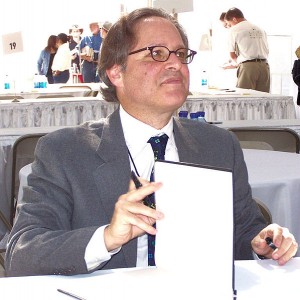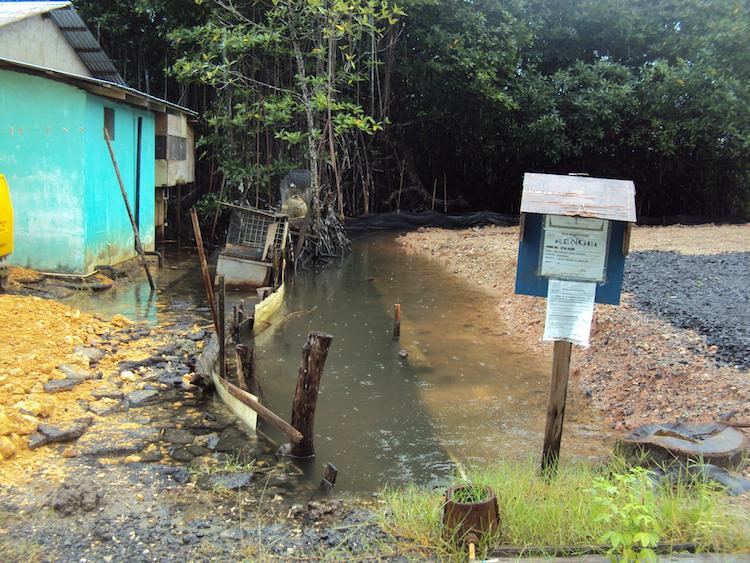Like many NYC residents, I get a lot of magazines and journals in which the self-styled public intellectuals get to hold forth on the state of the world. As these people get a great deal of access to the media, we hear much insistence on their importance. Today I read two leading articles from either side of the Atlantic that made me question whether we do in fact still need or want such public intellectuals. In addressing two of the main themes of the moment, student debt and climate change, these pieces both decide that their subjects have been overblown on grounds that are clearly tendentious. Another journalism is possible–I would say necessary.
Writing in the New Yorker, Nicholas Lemann, dean of the Columbia School of Journalism, Harvard grad (1976) and president of Harvard Crimson, doesn’t see too much to do about student debt. Over at the London Review of Books, Malcolm Bull of the Ruskin School of Drawing and Fine Art at Oxford University, agonizes over climate change ethics. Both are worryingly wrong, albeit from very different political perspectives. Lemann tends to quote Obama, Bull prefers Lenin. Both stress a highly partial account of their topic to get to their conclusions.
Lemann contrasts the “apocalypse mode” of writing on student debt with the good sense of Obama, speaking at UNC:
“In today’s economy, there’s no greater predictor of individual success than a good education. Right now, the unemployment rate for Americans with a college degree or more is about half the national average. The incomes of folks with a college degree are twice as high as those who don’t have a high-school diploma.” These figures communicate the over-all reality of the situation better than do the anecdotes about heavily indebted graduates who can’t find jobs.
In fact, Obama is being cute with his stats here. While it’s unsurprisingly true that college graduates over the age of 25 have better employment than high-school dropouts, it’s also true that
Thirty five percent of unemployed college graduates and those with advanced degrees have been without a job for more than a year, the same rate as unemployed high school dropouts.
And here’s the real kicker. According to a recent study by Northeastern University of Labor Department reports:
about 1.5 million, or 53.6 percent, of bachelor’s degree-holders under the age of 25 were jobless or underemployed last year.
So what Obama said is true but it’s highly selective with the truth. I wonder how many of those unemployed graduates are part of the one million people who owe over $100,000 in student debt, according to the Federal Reserve Bank of New York?
He continues to err when he suggests that
Research libraries and philosophy departments can’t possibly make money; they require subsidies from business schools and biomedical-research labs, but that drives tuition higher than it would be if universities dropped their money-losing functions.
As Chris Newfield and others have shown, humanities programs tend to be net profit makers for universities because their tuition charges easily cover their costs. Science labs, run on national grants, are loss makers because their overheads are not fully covered by those grants. A report from the University of California showed that UC lost $720 million on overheads when “winning” $3.5 billion in science grants–in a year when the system had an $813 million shortfall. In other words, almost all the budget crisis in California was due to underfunded science labs.
Lemann ices the cake by concluding:
Where higher education is actually underpriced is in the top-tier schools. That may sound offensive, but price is determined by what people are willing to pay, and the top twenty-five or so schools in the country could charge even more than they do.
I don’t think even the Ivies are making that kind of an argument. All this is supposed to lend force to Lemann’s support for the continuation of “lower” student loan interest at 3.4%. In fact, all that is lower is the rate of extortion, because the Federal Reserve loans money at a steady 0.1% at present. It only costs the government notional dollars that it might have extracted from students. Let’s think instead about the cost of unlevied taxation on capital gains, all subject to ceiling of 15% tax and realize the absurdity of this argument.
More puzzling is the lengthy discussion of climate justice in the LRB by Malcolm Bull. Bull appears to want to make a Left case for being a climate skeptic, although his piece takes a carefully weighted path. His LRB editor got the tone right with the headline: “Must we save the world?” There’s a very English cleverness and irony there that serves to wash over some worrying positions.
At the outset Bull asks of global warming: “Are humans causing it? Almost certainly.” Almost? There’s no reputable source that holds otherwise any more, even if there are well-funded climate skeptics at the Heartland Institute and elsewhere to give the illusion of debate. In the US alone, 15,000 temperature records were set this March. Bull asserts that warming is being offset by the “the protective effect of sulphate aerosols.” That sounds nice doesn’t it? These aerosols, which Bull speculates “could in theory be pumped into the atmosphere indefinitely for the sole purpose of reducing global warming,” are very toxic. You’ll know them better as things like sulfur dioxide, a by-product of burning coal that are well-known to cause asthma, emphysema, bronchitis and other respiratory conditions with potentially fatal effects. So perhaps not such a good idea after all.
This is the tendency of the writing here: not transparently refutable but taking a path of most resistance to climate change analysis. Bull concentrates solely on temperature increase as the index of climate change, while most in the field now look at parts per million of carbon dioxide, changing pH levels in the sea, ice melt, desertification and so on.
This tactic causes much of the analysis in the piece to be off target. There is an extensive discussion of the ethical relationship between present emissions policy and the future. This misses the point that climate change is now, it’s already happening and it’s too late to reverse, as Bill McKibben graphically puts it in his book Eaarth:
We’re not going to get back the planet we used to have, the one on which our civilization developed. We’re like the guy who ate steak for dinner every night and let his cholesterol top 30 and had the heart attack. Now he dines on Lipitor and walks on the treadmill, but half his heart is dead tissue.
Or if you think that’s corny how about this: according to the National Oceanic and Atmospheric Administration in 2009
changes in surface temperature, rainfall and sea level are largely irreversible for more than a thousand years after carbon dioxide levels are completely stopped.
Writing in 2012, Bull prefers to put it this way:
As for rises in sea level, the 2007 IPCC projections range from 18 to 59 centimetres – which is not enough to submerge anywhere other than the lowest-lying areas.
Which is to say, Pacific islands, Manhattan, Pakistan, Florida, Holland and other low-lying areas: too bad. And to ignore how sea level rise affects the salinity of the soil, the magnitude of storms.
In the end, I don’t think such outcomes are Bull’s central concern. Like some others, he worries most about the political future:
what climate change most conspicuously undermines is not the nation-state but democracy, for it requires supranational institutions at a time when there is no supranational democracy, and allows that at a national level the interests of future generations might take precedence over those of the current one.
This is the carbon dictatorship theory–that in order to control what is now out of control extraordinary measures will be required and they could only be dictatorial.
I would say that the global social movements have shown a very different set of possibilities. It is just as conceivable that a move away from the high consumption, fossil-fuel driven, debt accumulating permanent crisis might occur. Such a scenario would make it imaginable that carbon debt be taken as seriously as bond market debt. Direct democracies might be thought of as our last best hope, which could certainly do no worse than any of the current social systems. If we’re going to get from here to there, then quite frankly, we’re going to need a different kind of intellectual to help us think how to do it.



This supposedly “tough” policy in which departments stand or fall on their own revenues would, as I pointed out earlier, lead to the closure of almost all science departments, while my own Media Studies department, freed from the requirement to subsidize others, would have more money that we’d know what to do with. Which is really why it won’t happen!
Here’s a restating of Lemann’s ideas, without any of the subtlety or nuance: http://www.forbes.com/sites/petercohan/2012/05/29/to-boost-post-college-prospects-cut-humanities-departments/